When we asked if Suzanne Main would write an article about funny books for kids, her reaction was, ‘What do I know about funny books? I just write them!’ Turns out the answer is, quite a bit!
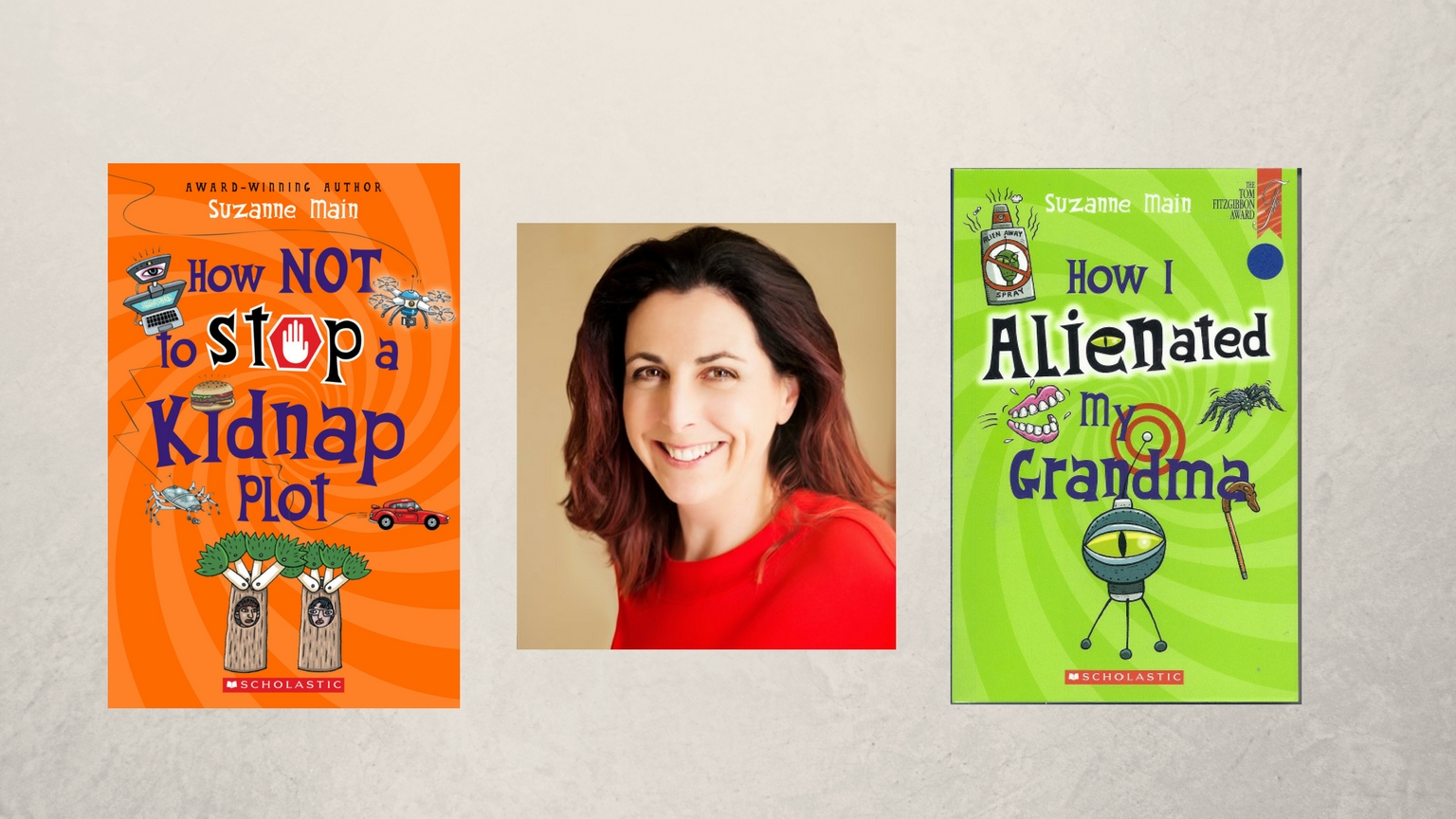
I don’t primarily define myself as a comedy writer. It’s possibly because I never set out to write funny books. When I began work on my first junior fiction novel, How I Alienated my Grandma, my plan was to create an exciting adventure story that children would love. When the story found its voice and that voice was funny, no one was more surprised than I. Despite this, I still consider my genre to be adventure.
Fellow comedy writer, Tom E Moffatt, similarly defines himself the writer of action-adventure sci-fi. He says, ‘Comedy is more of a garnish than a genre.’ His junior fiction novel, Barking Mad, winner of the Storylines 2015 Tom Fitzgibbon award, has a gigantic garnish of comedy.
‘Comedy is more of a garnish than a genre.’
For many junior readers that comedy topping is important. It’s the tomato sauce that allows them to happily consume the greens contained beneath it. Studies of children’s preferences in book selection have consistently noted that humour is a primary criterion for children’s pleasure in a story (McKenzie, 2005). Next, consider that recent OECD research showed that reading for pleasure is the single most important indicator of a child’s future success.
Ipso facto: Reading humorous books in childhood leads to future life success.
While I’ll admit to stretching the connective tissue between these studies a little in reaching that dramatic conclusion, I do believe that some of the weight of helping our children toward life success lies on the shoulders of writers of humorous junior fiction. And if this is the case, why are humorous books so often dismissed as silly or less worthy? Is it the idea that if a story contains jokes or humour it is somehow easier to write or there is less craft involved?

Chatting with Kyle Mewburn, one of New Zealand’s most successful authors of junior humour, published in twenty-nine countries, will quickly dispel anyone of the notion that these books are easier. She believes many people underestimate young readers, especially reluctant readers. Her take: if the humour isn’t constantly moving, dodging and weaving on the edge of comprehension, and throwing up surprises, readers will get bored and drift away.
… if the humour isn’t constantly moving, dodging and weaving on the edge of comprehension, and throwing up surprises, readers will get bored and drift away.
Just because it’s funny, it’s not simple
While writing a story using comedic devices may make it more appealing to young and reluctant readers, it doesn’t make the author’s job any easier. Persuasive and compelling plot, character arc, strong voice and theme are still essential elements. Comedy is an extra dimension the author must blend in. Although the tone of comedy writers’ books may not be serious, writers of junior comedy take their craft very seriously.
Take theme, for example. The hilarious Lily Max series has believing in yourself at its heart. Author, Jane Bloomfield, engages humour to help her protagonist Lily Max deal with tough situations at home, injustices at school and a myriad of situations that junior fiction readers regularly grapple with in their own lives. It’s now a widely accepted notion that resilience and humour go hand in hand, and Jane’s novels demonstrate this.
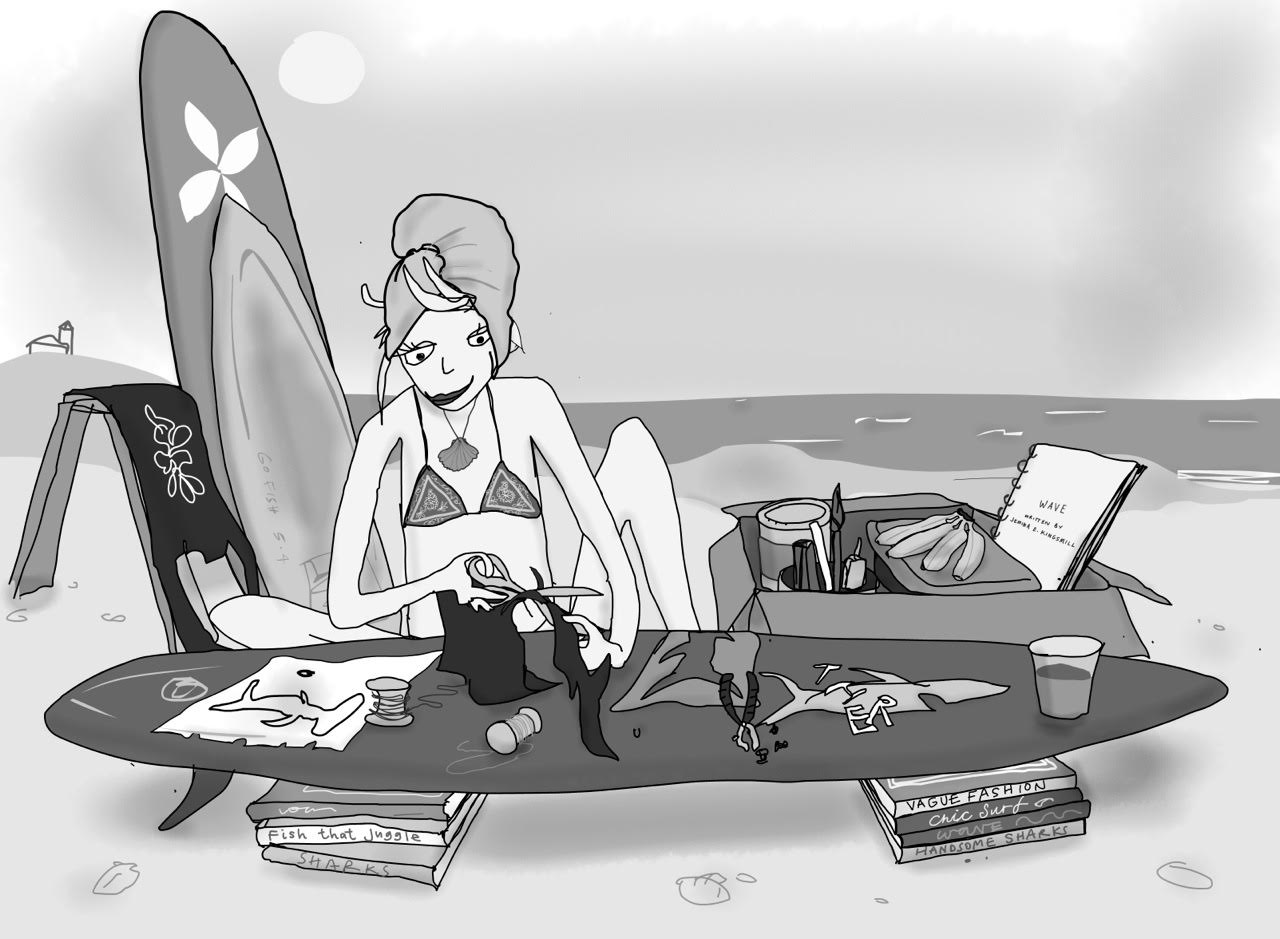
Kyle Mewburn’s works integrate strong elements of social and environmental undertones. My own incorporate teamwork, perseverance, friendship and problem-solving, all delivered with a side helping of not judging others too quickly.
Risky business
While the payoff from utilising comedy can be high in terms of increasing reader engagement and enjoyment, it’s not without significant risk. Consider the fine balance required to pull off a suspenseful adventure, whilst simultaneously engaging comedic devices. A page-turning tale requires tension to be built, yet comedy by its nature can unleash the opposite effect. Used poorly, comedy will completely dissipate any tension that the writer has striven to create.
Used poorly, comedy will completely dissipate any tension that the writer has striven to create.
Sue Copsey, author of NZ-based ghost stories, incorporates doses of humour into her ghost stories to carefully balance out the spooky tension and deflect attention away from the hefty doses of educational content. Without the humour, she isn’t convinced kids would be as eager to turn the pages.
Comedy writers are also required to cater to a wide variety of tastes, particularly in junior fiction where their work is read not just by junior readers, but by parents, teachers, and other adult gatekeepers. Tastes amongst individuals and across age groups and cultures can vary widely.
Kyle Mewburn states, ‘Comedy writers cannot afford to be a one joke pony.’ Every comedy writer I spoke to agreed. An entire book of back-to-back fart jokes won’t cut it with a young audience any more than it would an adult one (unless you’re writing The Giant Book of Fart Jokes). If toilet humour appears in a junior fiction story, it shouldn’t be assumed that this will be the dominant or only form of humour employed. The best comedy writers will have a broad repertoire of humorous devices at their disposal. The way they blend them into the overall story is what defines the style of a humorous writer.
The best comedy writers will have a broad repertoire of humorous devices at their disposal.
Shifting sensibilities about humour
A further black ice area frequently navigated by the humorous writer is the shifting sensibilities of the population. What is acceptable and what is not is constantly evolving. Often humour nudges at boundaries. Judging where those boundaries lie can be problematic; the author who crosses a reader’s personal boundary is likely to be rewarded with a one-star review.
If they can overcome these challenges, the books of commercial ‘funny’ authors will generally sell in greater numbers in New Zealand than those of their more literary counterparts.
Auckland author of the popular Johnny Danger series, Peter Millett, is concerned that sales charts in New Zealand are dominated by celebrity authors from England, Australia and America. He believes there is no greater opportunity for a Kiwi author to have significant local and overseas success than by releasing a much-loved and top-selling funny book series. But to achieve that, more local support and funding is needed for New Zealand writers and publishers of funny books.
Junior fiction comedy writers often feel left on the margins when awards, residencies and grants are being given out. These tend to be awarded to practitioners of literary fiction by exponents of literary fiction. And whilst few comedy writers would argue that the literary sector shouldn’t receive support, what they would like to see is more opportunities for recognition of excellence in genre fiction, including comedy.
Junior fiction comedy writers often feel left on the margins when awards, residencies and grants are being given out.
The establishment of a Children’s Laureate, the return of the Children’s Choice Awards to the NZ Book Awards for Children & Young Adults, and/or an award for humorous fiction are suggestions most kids’ comedy writers support.
Why are these measures important? The industry need only look to the work of Craig Sisterson and others within the crime writing scene in New Zealand to see the huge uplift in profile, mana, and the practise of that genre achieved through the adoption of similar measures.
In the eco-system that is children’s literature, humour is the nectar that attracts the bees to the flowers. The result is pollination, growth and a system that flourishes.
With thanks to the following authors for their input: Jane Bloomfield, Sue Copsey, Kyle Mewburn, Tom E Moffatt and Peter Millett.
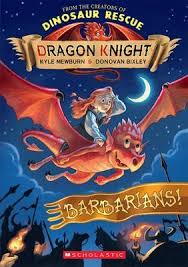
Dragon Knight 6: Barbarians
By Kyle Mewburn
Illustrated by Donovan Bixley
Published by Scholastic NZ
RRP: $12.99
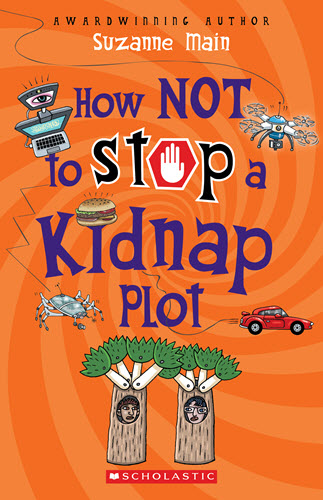
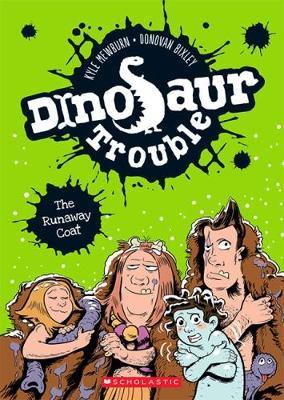
the Runaway coat (dinosaur trouble)
By Kyle Mewburn
Illustrated by Donovan Bixley
Published by Scholastic NZ
RRP $9.99
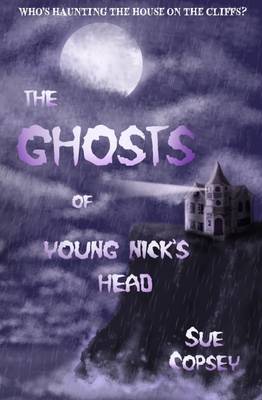
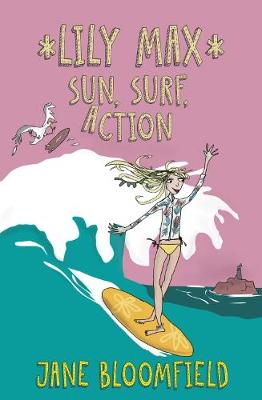
Lily max: Sun, Surf, Action
By Jane Bloomfield
Published by Luncheon Sausage Books
RRP $22.00
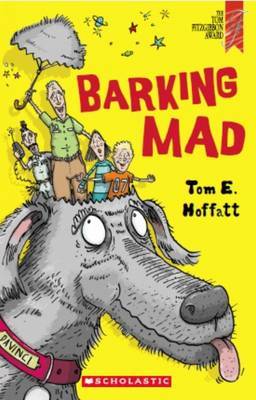
Spy Borg (Johnny Danger)
By Peter Millett
Published by Penguin
RRP $18.00

Suzanne Main
Suzanne is a late-comer to children’s writing. She began writing in 2012 when, worried about a shortage of appealing reading material for her book-mad son, she penned her first children’s novel How I Alienated my Grandma. It went on to win the Storylines Tom Fitzgibbon Award, a Storylines notable book award and a Children’s Choice finalist spot in the NZ book awards for Children and Young Adults. It is currently being translated into German.
Her second book, How Not to Stop a Kidnap Plotwas recently published by Scholastic New Zealand. When not writing Suzanne can be found weaving stories out of numbers (that’s code for accountant) for a Wellington charity, or chasing after her two teenagers.



